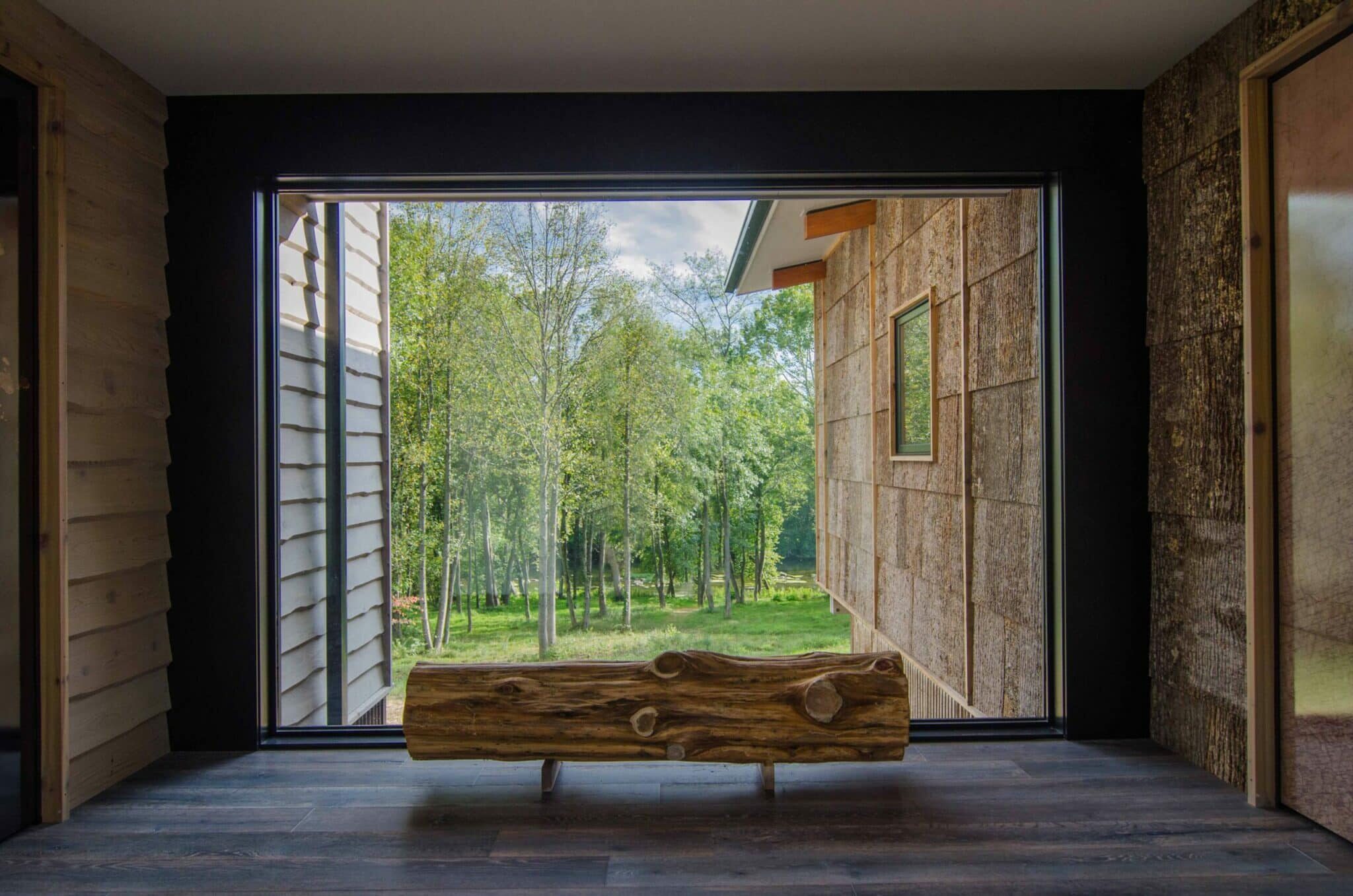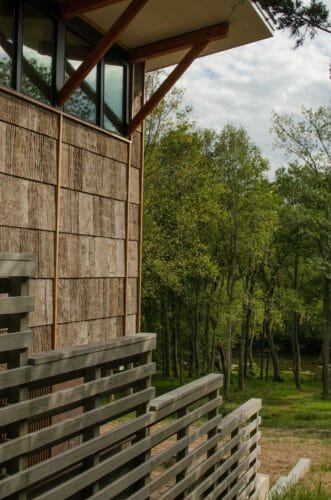The sustainable interior design industry is changing to be more environmentally friendly and more informed about manufacturing practices.
As the buying power of Millennials and Generation Z consumers grows, so too does the importance of their expectation for luxury brands to share their personal values, including patronage of sustainable and/or socially conscious brands and products.
PHOTO CREDIT: Reader & Swartz Architects
And as more and more luxury buyers pay attention to the ethics of their purchase decisions, designers must also pay attention to providing healthy returns on client investments.
We’ve seen moves in the luxury fashion industry to bring brands more in line with consumer priorities. That industry has a complicated relationship with sustainability, because:
- Luxury products often use controversial materials like fur and exotic skins.
- Tremendous waste is produced in the production and commercial stages.
- The industry is secretive about processes and materials, contradicting key sustainable governance principles of transparency and open communication.
But as sustainability has become a bigger criteria for consumers looking to spend money with a certain brand, luxury fashion companies are making moves to articulate similar values to consumers. To wit, 32 fashion companies — including luxury bigwigs like Chanel, Ralph Lauren, and Prada — signed the Fashion Pact last year pledging to combat greenhouse gases and emphasize sustainability in the industry.
But arguably, consumers deserve more than sustainability. That’s because sustainable architecture and interior design only aims for net‑zero, not net‑positive, impact on the environment. And when the goal is only to reduce damage—not to be more beneficial to nature—sustainability objectives can be vague, with a non‑holistic approach to finding solutions to unique eco‑challenges.
The evolution to regenerative design is especially important with sustainable interior design, since creations both exist within and create an internal environment. Consumers want to live in homes in which they can feel comfortable knowing that their lifestyle and the products contained within have and still are not causing further harm to nature.
How can home design brands ensure they’re taking the step up from sustainability to embrace a regenerative mindset? By understanding the unique socio‑ecological context of the work, rather than applying generic, one‑size‑fits‑all solutions to challenges.
Consider the following:
- Are materials sourced in an environmentally beneficial way? For example, Bark House bark products do not require additional trees to be cut down. Instead, materials are harvested from wood waste. We take steps to ensure a healthier forest‑source of materials.
- Does the production process think about the local environment? Bark House not only uses no water in direct manufacturing, it also continues to work on initiatives to protect the Southern Appalachian watersheds, which provide water to 10 million people.
- How can you feed new life, health and wealth into the myriad ecological and social systems a home design project or product touches? At Bark House, we provide free training for our vendors in the ethical procurement of RAW and regenerative practices. This encourages our vendors to not only actively engage in regenerative processes themselves, but also share with others in turn.
More and more, consumers expect companies to provide solutions to environmental and social issues. Consumers are now readily avoiding companies with adverse reputations. By proving to consumers that their values align with them, luxury interior design brands can enhance both their business and the environment.
Luxury is not built on an image of excess anymore. Sustainable interior design brands have a responsibility to the consumer to advocate a healthier world in which regenerative attitudes and products are considered desirable.


